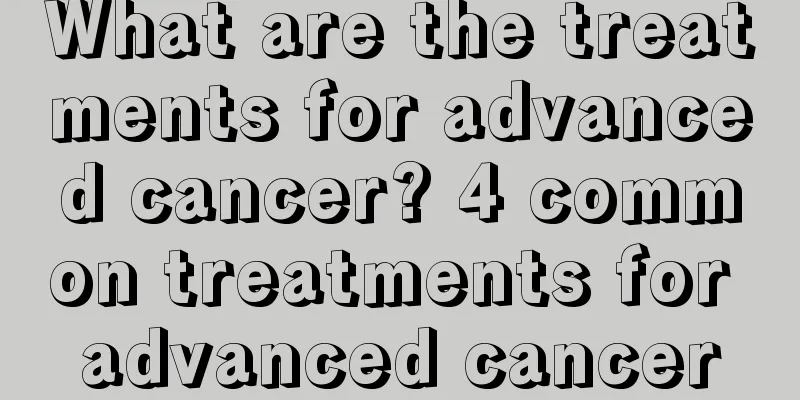Is a heart rate of 116 normal?

|
Heart is the most basic issue of human health. Generally speaking, if a person's heart is relatively healthy, many diseases will be avoided. However, as people age, if they do not pay attention to maintenance in their daily lives, it is easy to cause heart health problems, and in severe cases, they may even lose their lives. If a person has a fast heartbeat, he or she needs to be treated properly. Is a heartbeat of 116 normal? Is a heart rate of 116 normal? The normal heart rate of an adult is 60 to 100 beats/minute, the heart rate of an athlete can be 50 to 100 beats/minute, the heart rate of a newborn is 120 to 140 beats/minute, the heart rate of a child under 1 year old is 110 to 130 beats/minute, the heart rate of a child aged 2 to 3 years old is 100 to 120 beats/minute, and the heart rate of a child aged 4 to 7 years old is 80 to 100 beats/minute. The heart rate of children over 8 years old is close to that of adults. Therefore, for people over 8 years old, a heart rate of 116 beats/minute is considered a rapid heart rate, which is a rapid arrhythmia. What causes a rapid heartbeat? 1. Rapid sinus heartbeat (1) Physiological: This type of rapid heartbeat is very common. Many factors can affect the heart rate, such as changes in body position, physical activity, food digestion, emotional anxiety, pregnancy, excitement, fear, excitement, drinking, smoking, drinking tea, etc., which can increase the heart rate. Age is also a factor; children tend to have faster heart rates. (2) Drug-induced: Some drugs can cause a person's heart rate to accelerate, such as sympathomimetic drugs such as ephedrine and adrenaline. Parasympathetic blocking drugs such as atropine, caffeine, thyroxine, amphetamine, etc. can cause tachycardia. (3) Pathological: Some systemic diseases can also cause a faster heartbeat: high fever, anemia, hypoxia, infection, hyperthyroidism, pain, acute rheumatic fever, beriberi and neurosis can cause tachycardia. (4) Cardiovascular disease: Acute blood loss, hypotension and shock, arteriovenous fistula, heart failure, myocarditis, cardiomyopathy, pericarditis, acute myocardial infarction and various organic heart diseases can all lead to sinus tachycardia. 2. Paroxysmal rapid heartbeat (1) Paroxysmal supraventricular tachycardia. Generally speaking, this phenomenon is common in people without heart disease, but can also be seen in people with rheumatic heart disease, hyperthyroidism, coronary heart disease, hypertensive heart disease, preexcitation syndrome, etc. The heart rate is below 200 beats/minute and the attack duration is short. (2) Paroxysmal ventricular tachycardia. This condition is also caused by some diseases. Most ventricular tachycardia is caused by severe and extensive cardiomyopathy, severe hypertension, rheumatic heart disease, coronary heart disease and myocardial infarction. The heart rate during an attack is mostly 150-250 beats/minute, and there is often shock and precordial pain. Although under normal circumstances, exercise can cause a person's heart rate to speed up, if this happens even when the person is quiet, then we need to pay attention, understand the cause and choose a suitable method to improve it. We should also pay special attention to daily health care in our lives. |
<<: How long does it take to heal a broken tendon
>>: Is a heart rate of 91 normal?
Recommend
How to quickly eliminate bloodshot eyes? These six methods can eliminate bloodshot eyes
With the increasing pressure of life, coupled wit...
What are the symptoms of blocked meridians throughout the body
If the meridians in the whole body are blocked, i...
The consequences of not treating dental cyst
Oral problems are still very prominent in today&#...
Urine test pH
The acidity and alkalinity of urine test is what ...
How to develop the right brain
The brain is an important neural hub in the human...
Excessive sweating is also a warning sign
Some people think that sweating frequently in the...
How to use the essence
We may often see essence in our lives. It is a su...
How many days after colon cancer surgery can I move around
The exact cause and mechanism of colon cancer, li...
Differential diagnosis of advanced esophageal cancer
Differential diagnosis of advanced esophageal can...
Is hoarseness caused by lung cancer serious?
Is hoarseness caused by lung cancer serious? 1. H...
Early symptoms of lung cancer can easily lead to misdiagnosis
I believe everyone is already very familiar with ...
Understanding the causes of testicular cancer
As we all know, everything has a cause and effect...
Diarrhea with abdominal pain
If diarrhea occurs in the human body, it is most ...
What is inside a hard pimple
Acne is a headache for adolescent boys and girls....
What tests are needed to diagnose fibroids
Nowadays, the prevalence of fibroids is very high...









